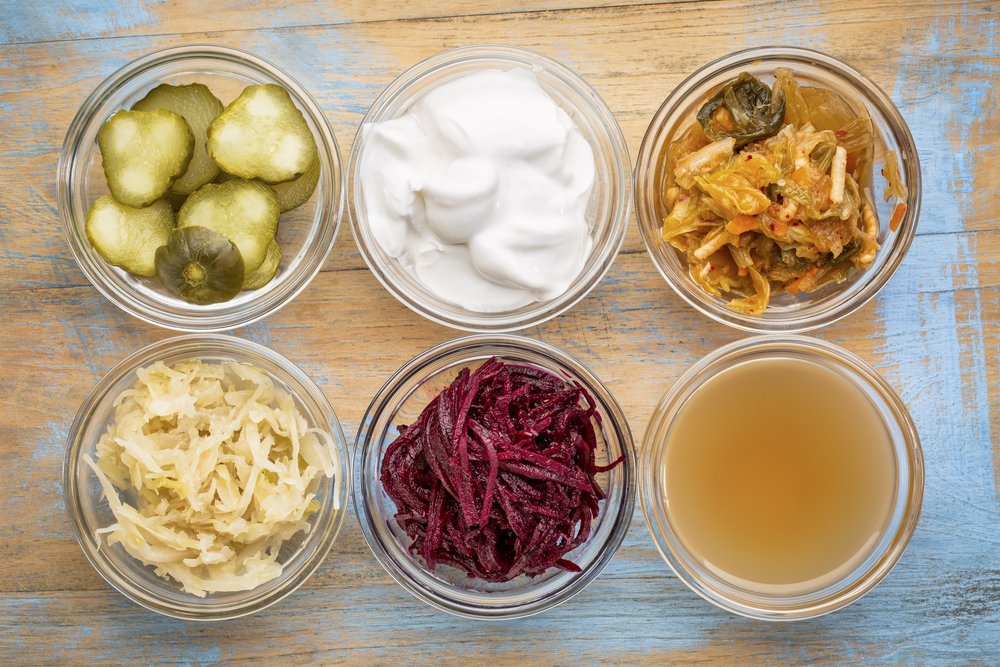Postbiotics Anyone?
Probiotics are one of our top three pro-digestive supplements (along with omega-3s and zinc). And for a quick reminder, according to the World Health Organization, probiotics are “live microorganisms that, when administered in adequate amounts, confer a health benefit to the host.” In plain English? They’re good bugs. We have literally trillions of them hanging out in our guts right now: they’re part of our natural gut flora, or microbiota.
Also in the "biotics" family is prebiotics, the stuff that probiotics eat, such as high-fibre foods. But have you heard of postbiotics? It is definitely a less familiar term, but one some microbiologists say is a huge area of interest!
Postbiotics are the waste left behind after your body digests probiotics and prebiotics. Some postbiotics are the product of fermentation and some postbiotics are the structural parts of the cells themselves. They can be found in fermented foods, but your gut can also make them!
So, what’s the research saying on postbiotics?
They may improve muscle endurance in older adults
Postbiotics reduce inflammation
They "prevent and treat diet-induced insulin resistance" and obesity in mice that were on a high-fat diet
And postbiotics could prevent common infectious diseases like upper respiratory tract infections and acute gastroenteritis
Take home message: while we wait to hear how effective an oral postbiotic is, eating fermented foods is an easier way to get the desirable effect of probiotic and postbiotic organisms.
Speaking of probiotics - grab probiotics that contain at least 10 billion live active cells per dose, guaranteed with a clearly marked expiry date and purchased in the refrigerated section to ensure that no heat-associated damage occurred while in the store.
If you enjoyed this post please click like, share it with family & friends or sign up to our newsletter to receive news and updates from Food Yourself.
Bermudez-Brito, Miriam, et al. "Probiotic Mechanisms of Action." Annals of Nutrition and Metabolism 61.2 (2012): 160-174.
Salminen, S., Collado, M.C., Endo, A. et al. The International Scientific Association of Probiotics and Prebiotics (ISAPP) consensus statement on the definition and scope of postbiotics. Nat Rev Gastroenterol Hepatol 18, 649–667 (2021). https://doi.org/10.1038/s41575-021-00440-6
Liu S, D’Amico D, Shankland E, et al. Effect of Urolithin A Supplementation on Muscle Endurance and Mitochondrial Health in Older Adults: A Randomized Clinical Trial. JAMA Netw Open. 2022;5(1):e2144279. doi:10.1001/jamanetworkopen.2021.44279
Canani RB, Costanzo MD, Leone L, Pedata M, Meli R, Calignano A. Potential beneficial effects of butyrate in intestinal and extraintestinal diseases. World J Gastroenterol. 2011 Mar 28;17(12):1519-28. doi: 10.3748/wjg.v17.i12.1519. PMID: 21472114; PMCID: PMC3070119.
Gao Z, Yin J, Zhang J, Ward RE, Martin RJ, Lefevre M, Cefalu WT, Ye J. Butyrate improves insulin sensitivity and increases energy expenditure in mice. Diabetes. 2009 Jul;58(7):1509-17. doi: 10.2337/db08-1637. Epub 2009 Apr 14. PMID: 19366864; PMCID: PMC2699871.


